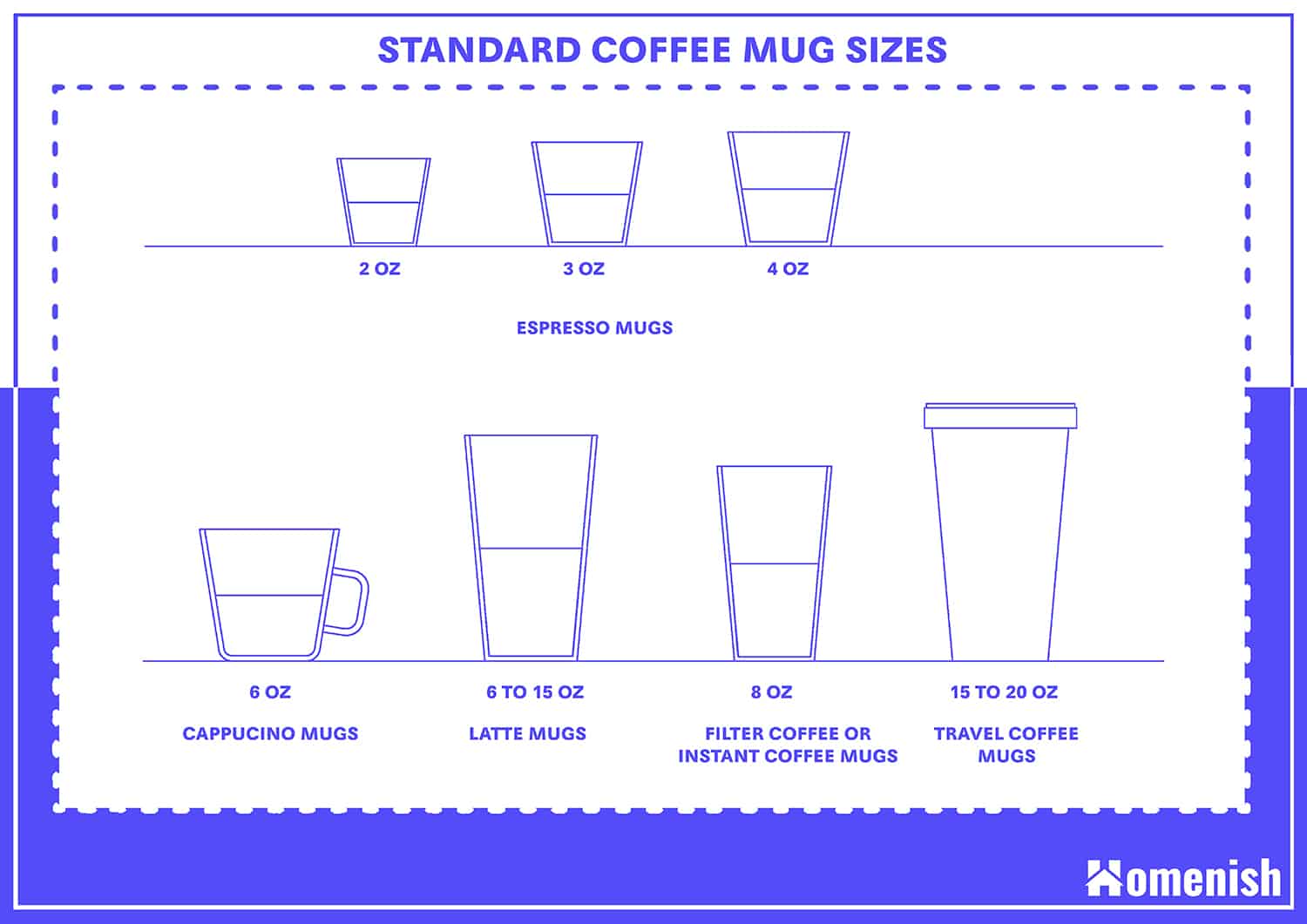
Standard Coffee Mug Sizes and Guidelines (with Drawing) Homenish
The standard coffee cup sizes will indicate how many oz is a mug portion. The oz in a coffee mug indicates the quantity of coffee per serving. Here are the coffee sizes of each cup and the type of coffee you can expect to get based on the cup size: 2 to 3 oz (57 to 85 ml) This mug is used for espresso and serves the most concentrated coffee.
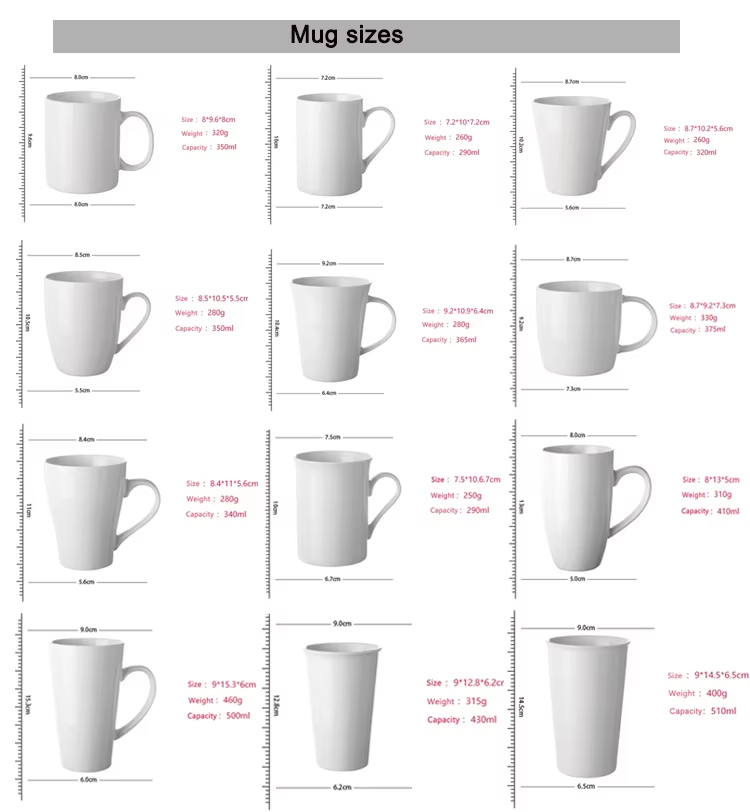
Coffee Mug Sizes Uk Coffee Cup Size Guide KeepCup (3,145) £24.00
Regular mugs usually contain 240-350 ml (8-12 fl oz in the US or 8.3-12.5 imp fl oz in the UK) of liquid. Coffee cups vary according to the volume of coffee beverages. You must notice 3 variations of coffee drinking containers. Cups Mugs Tumblers Cups are usually utilized in cafés and on former occasions.

Coffee Measurements Coffee measurements, Coffee brewing methods
They declared a single cup size to be only 200 milliliters (6.76 ounces). So how big is a standard coffee cup? In short, it depends on which country you are in and which coffee cup sizes they are using as their standard size. How many ounces is a standard coffee mug? Coffee mugs are very different from cups.

Standard Coffee Cup Sizes Everything you need to Know
The most common cup size is 8.45 oz to 10 oz. This mug holds 250ml to 295 ml of liquid. It allows coffee drinkers to make a good cup of coffee without having to worry about large amounts of added milk or extra sugar. Though the standard size is 8 oz, that doesn't mean you can find it everywhere.

Drinkware Tips What's the Right Size Cup for Your Beverages? Beau
As you can see, a "standard" coffee cup size can be considered as 6 to 8 ounces. That's big enough for typical brewed coffee and cappuccinos. However, standards are not international. Since the USA is the only country aside from Liberia and Myanmar to use the Imperial measurement system, 8 ounces is not accepted everywhere.
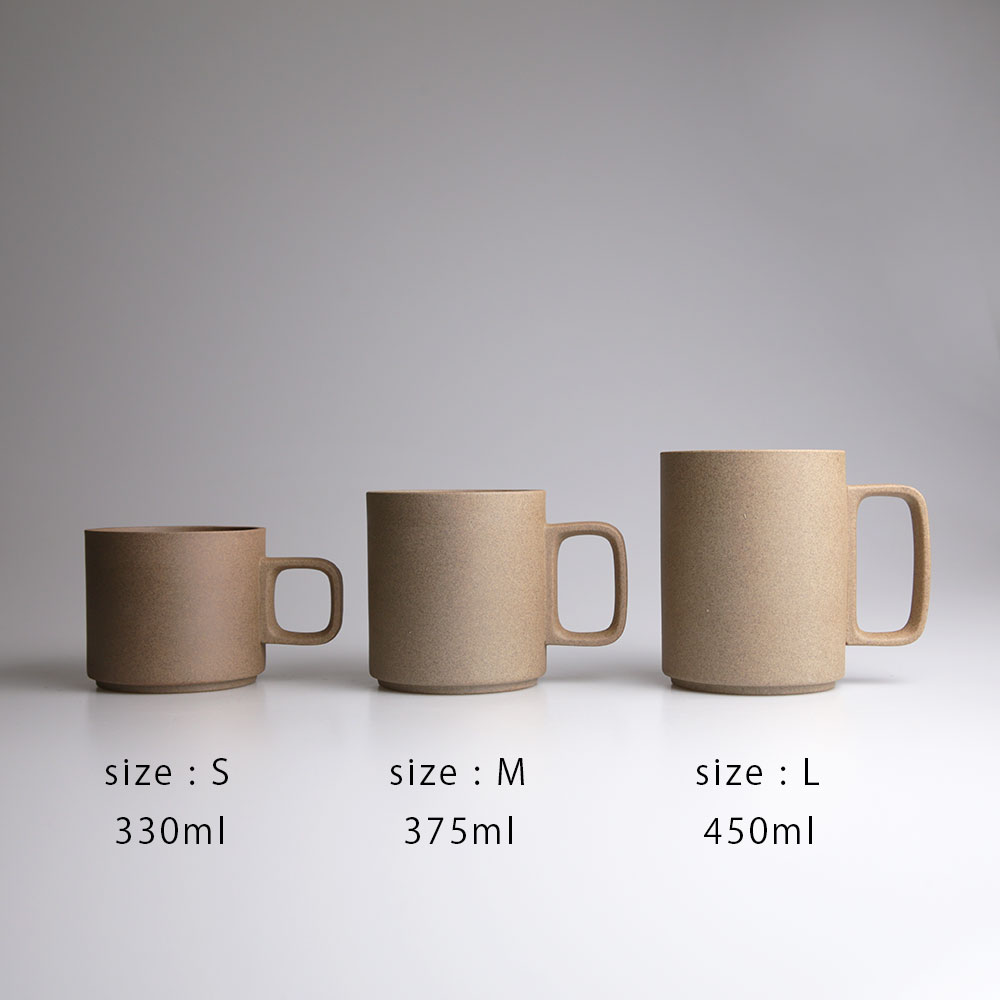
Coffee Mug Sizes Uk Coffee Cup Size Guide KeepCup (3,145) £24.00
Size Guide Available in a range of materials, colours and sizes, there is a KeepCup and Bottle to suit you. Start with an overview of our range which follows industry-standard sizes, or work backwards from your favourite beverage. SHOP THE RANGE Match your drink order to the perfect KeepCup size
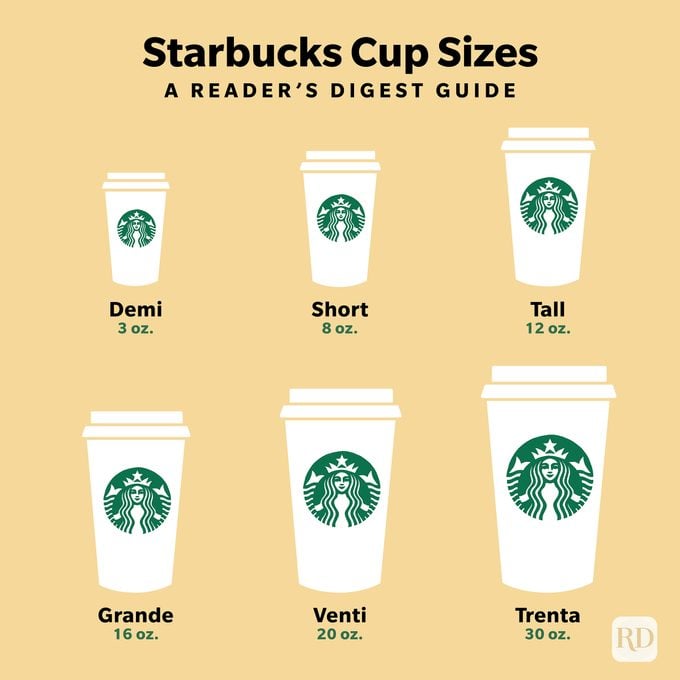
Starbucks Cup Sizes (Explained) Grande, Venti, etc. Trusted Since 1922
The standard size of a coffee cup varies from an average size of 8 to 10 ounces depending on where you are getting your coffee from. Different establishments will use different sizes. Unfortunately, there is no standard coffee cup size that is set out by any particular authority or agency.
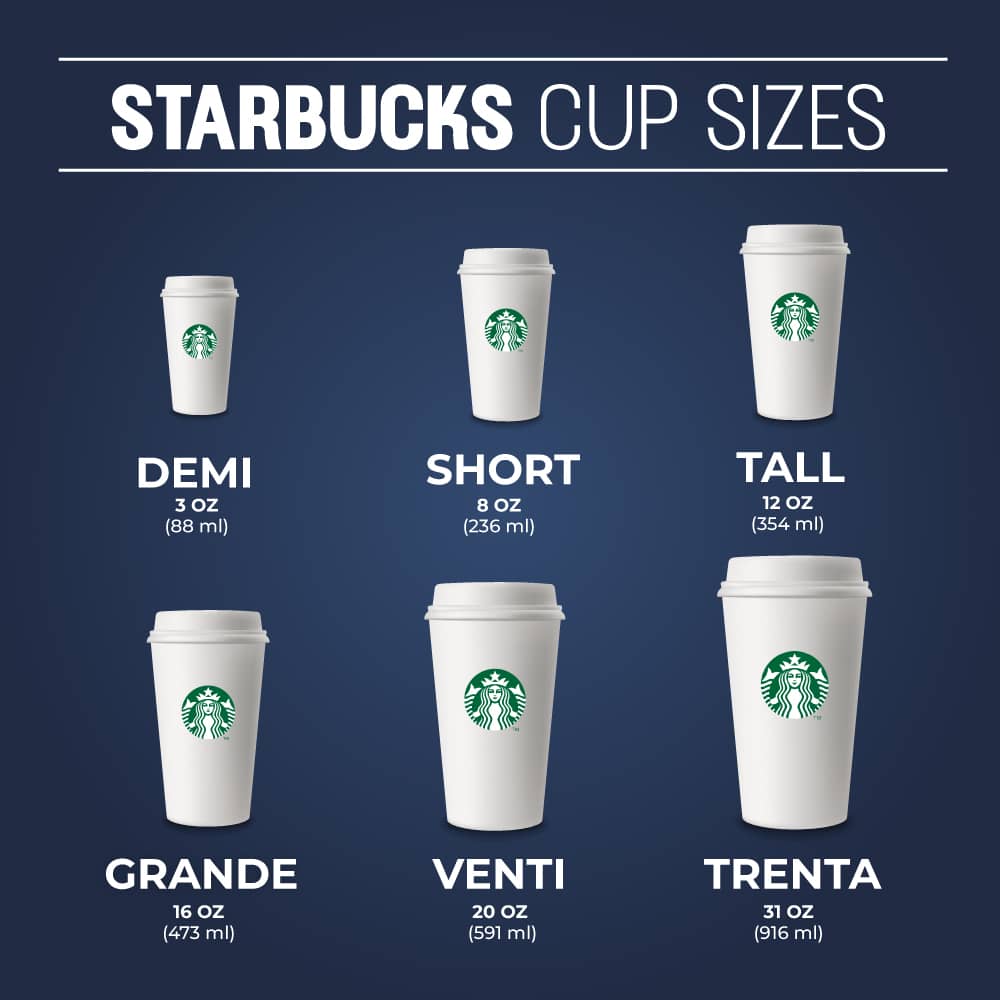
What Are The Different Starbucks Cup Sizes? DrinkStack
Standard Coffee Cup Sizes. 8 oz glasses are amazing standard coffee mug sizes, incredible for a crisp arrangement of your preferred channel espresso or latte. Most standard espresso cups are without a doubt 8 to 10 ounces, the best size for getting a charge out of a pot of espresso. 12-ounce containers make for incredible frosted espresso.
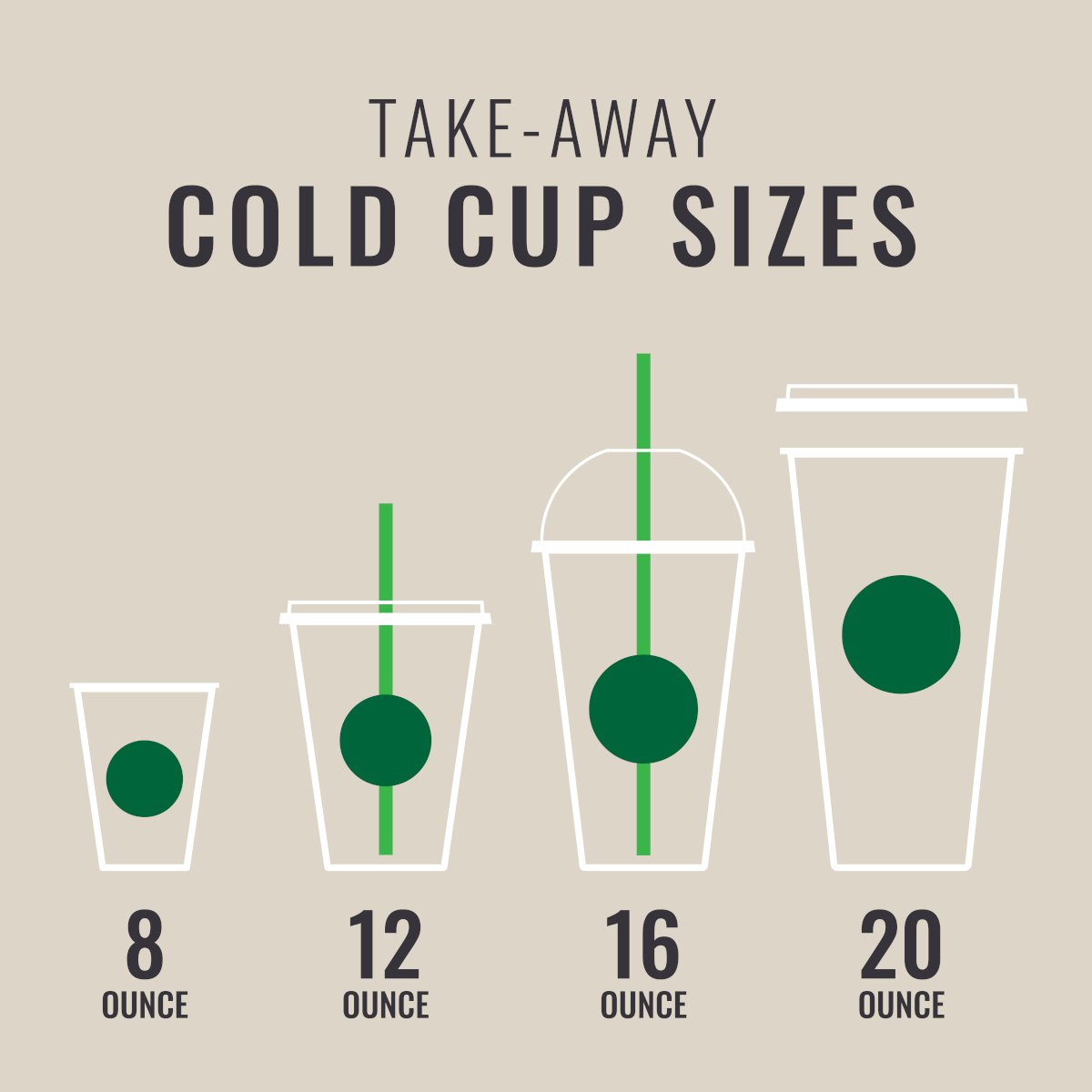
Starbucks vs. Dunkin’ Cup Sizes Same or Different? Tastylicious
The standard size, however, is 8 oz (236 ml). A simple cup of coffee brings in such warmth and energy. Make the most of each morning 8 Cup Coffee Makers designed for convenience caffeine. Depending on the location, there is also a difference in sizes because of a difference in preference.
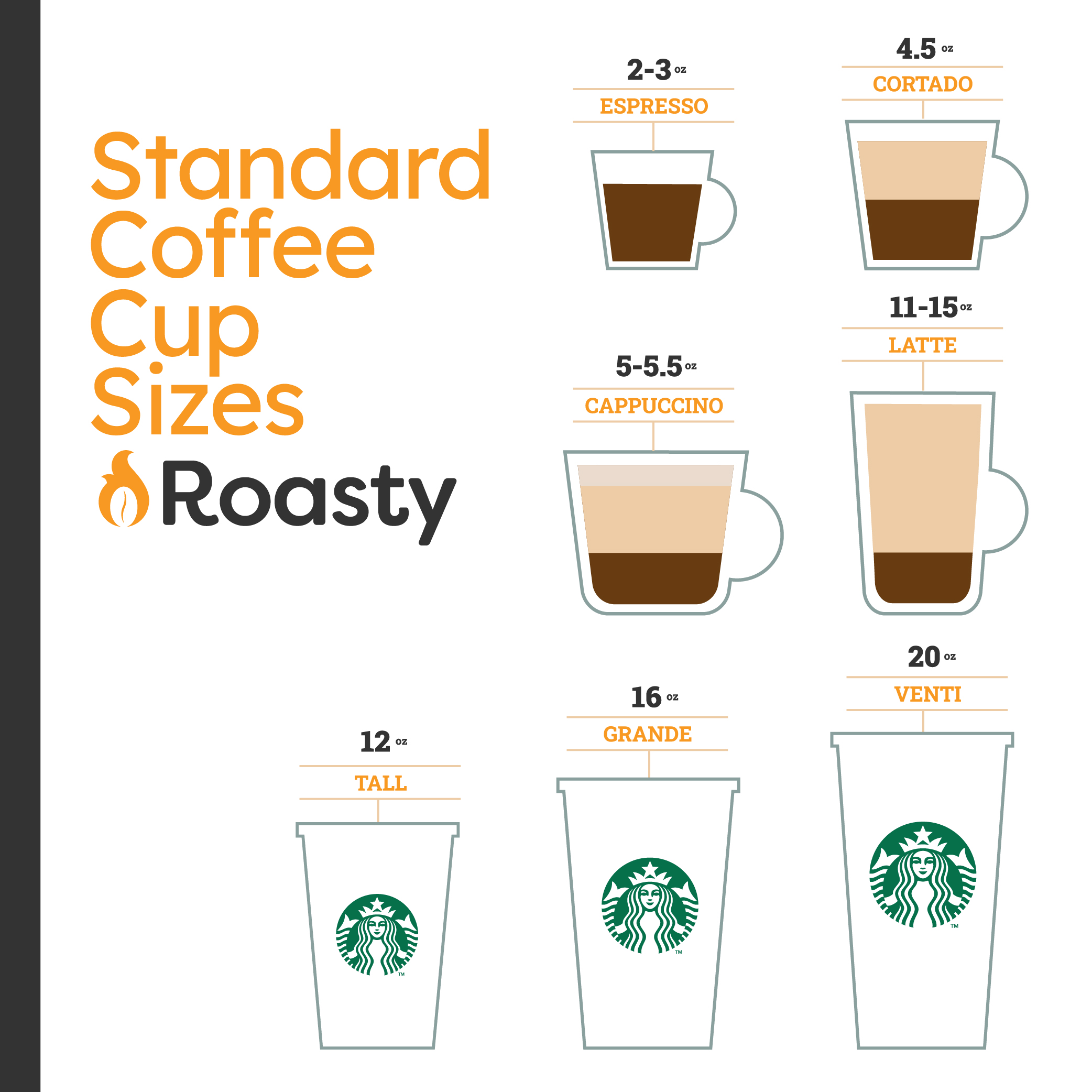
Standard Coffee Cup Sizes Espresso, Lattes, And More
In general, the standard cup sizes are between 30ml and 295ml, which works great for drip coffee. On the other hand, cups can go all the way up to 15oz or more to accommodate those who really need to fill up on caffeine. As indicated, there is also a cup size for every coffee type.
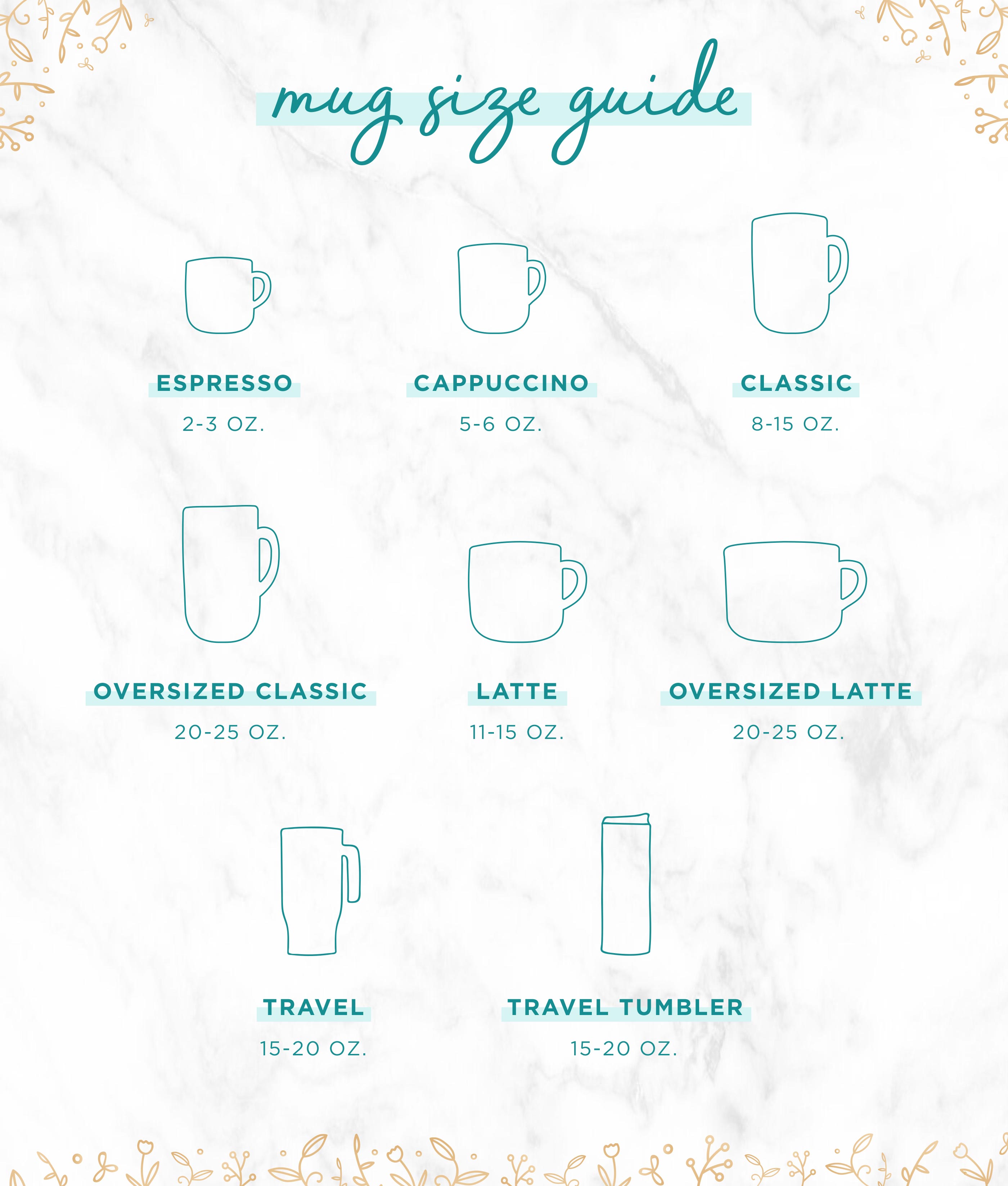
Coffee Mug Sizes Guide to Finding the Perfect Cup Shutterfly
What is the Standard Coffee Mug Sizes Chart? Are you a fan of robust espresso or a velvety latte? Are you often on the move or a frequent traveler? Our comprehensive guide below showcases the range of common coffee cup sizes and the ideal mugs to savor each beverage. Here are the sizes charts of some typical coffee mugs: 1.

Standard Coffee Cup Sizes Everything you need to Know
Standard Coffee Cup Size. Most standard cup sizes are between 8oz and 10oz. These work best for drip coffee. However, some coffee cups can go all the way up to 15oz and more for hardened coffee lovers. Some coffee cups also fall under the barista standard, which means they neatly fit under the standard coffee machine heads.
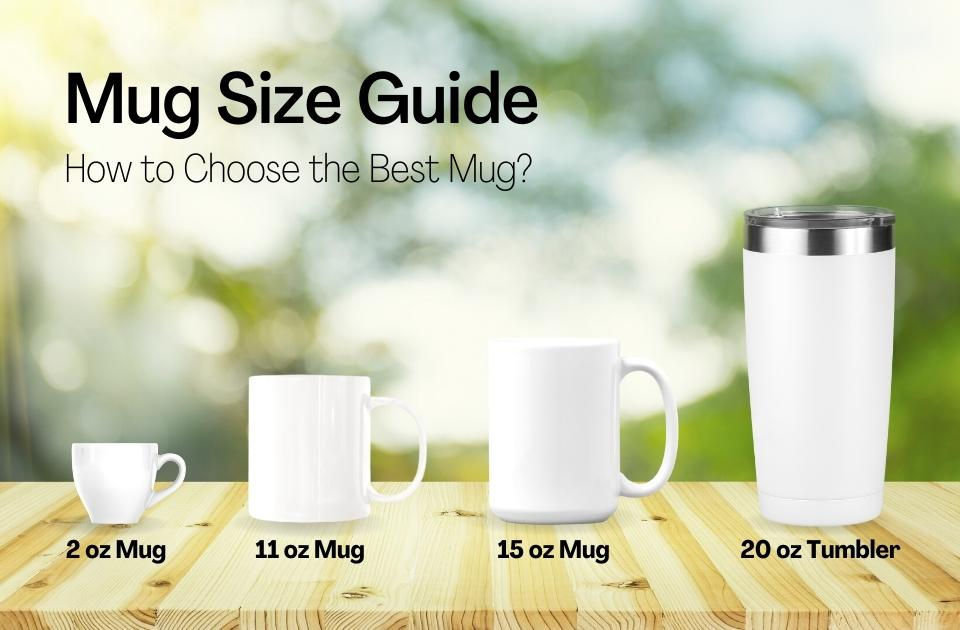
Mug Sizes How to Choose the Best Mug that Suits You Most!
Plus, we'll compare cup sizes of 3 coffee shops: Starbucks, Dunkin', and Tim Hortons. There are 6 ounces in a standard cup of coffee. This is a liquid measure of the brewed coffee, not the capacity of the physical cup. The 6-ounce measurement equals one "cup" in a standard coffee maker. And it's based on the golden ratio for well.
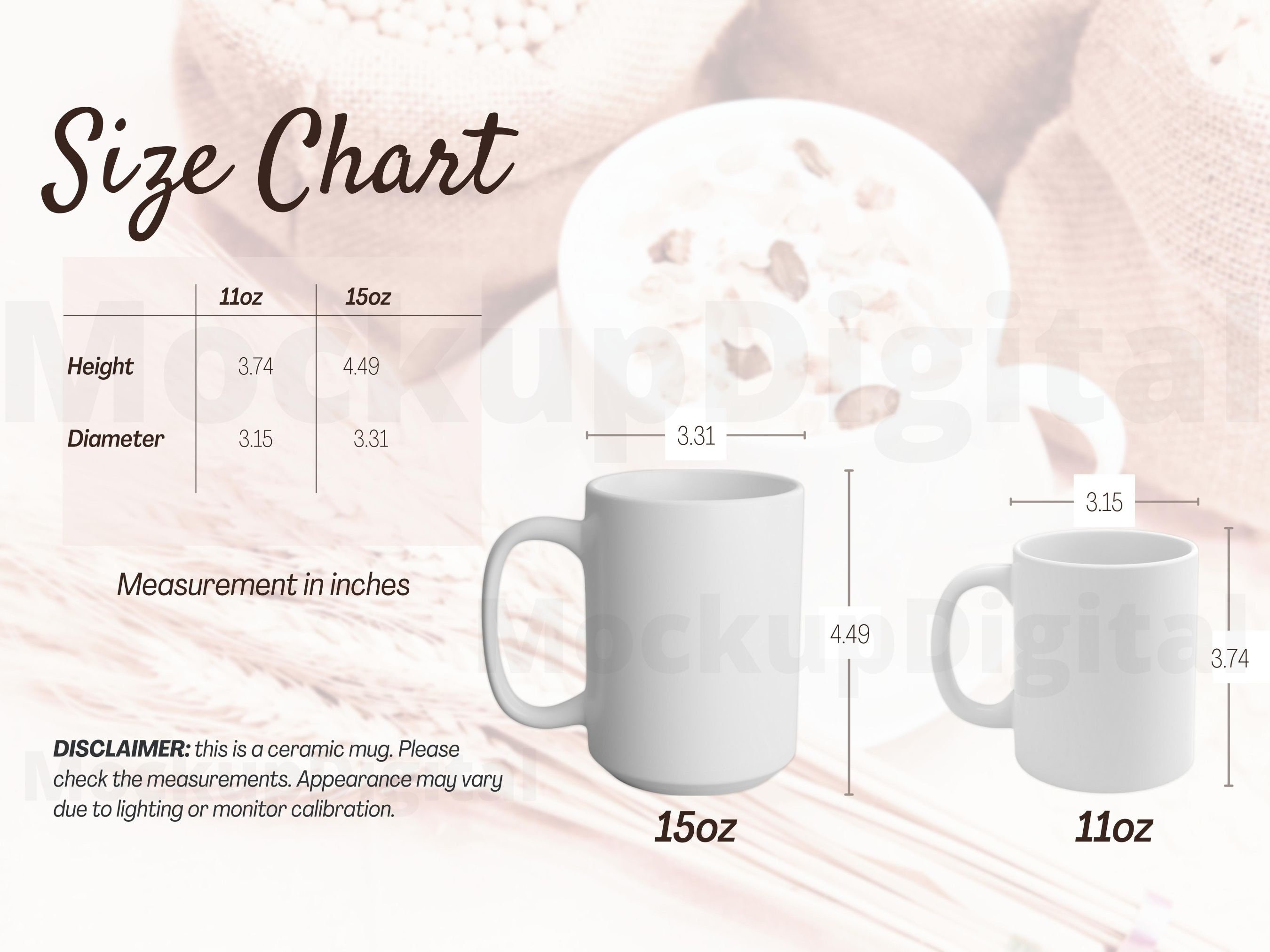
Printify Mug Size Chart Coffee Cup Mockup Coffee Mug Mockup Etsy
This matters because the countries that use the metric system argue that the standard cup size for coffee is around 250ml, or 8.45oz. But in the US, 8oz is considered to be a standard cup of coffee. And if that wasn't complicated enough, Japan decided to come up with its own standard size for a cup of coffee, at just 200ml or 6.78oz.

Tim Hortons starts serving up coffee in new cup sizes CityNews Toronto
That translates to approximately 8.45 ounces. In countries like the U.S. that use the imperial system, a standard cup size is eight fluid ounces. However, if you paid a visit to Japan, you might notice that a standard cup size for coffee is 200 milliliters, which is equivalent to about 6.76 fluid ounces. Clearly, declaring one cup size as the.
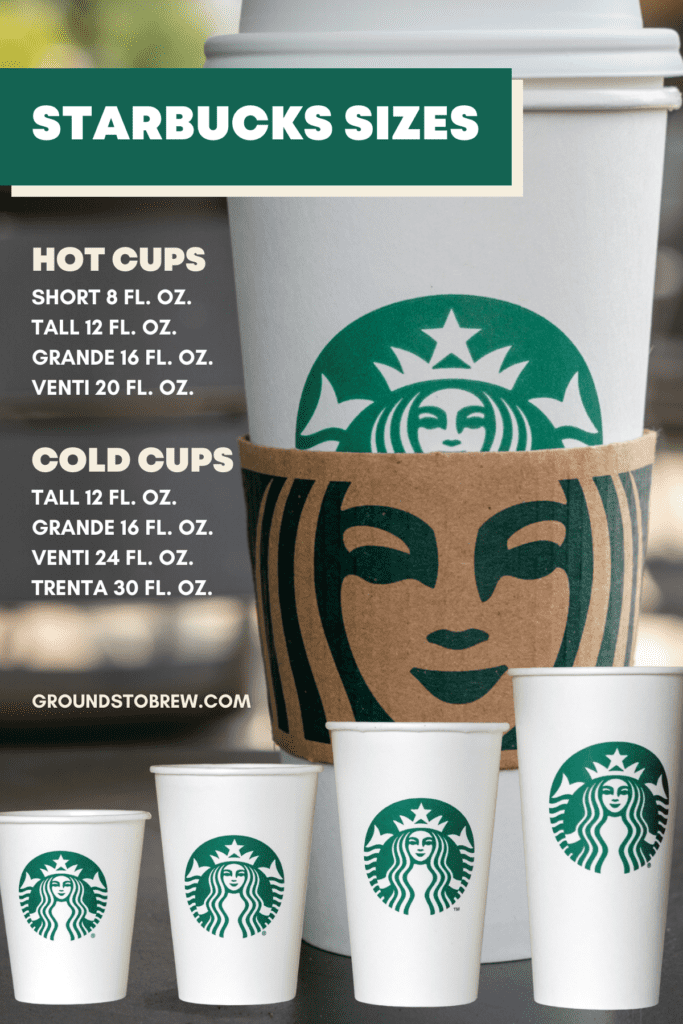
coffee cup sizes names Deeanna Sweet
Need a coffee cup sizes chart? Check out our comprehensive guide to different cup sizes and choose the perfect mug for your coffee drink. Let's say you're making a cappuccino. Aside from great coffee beans, milk, and an espresso machine, you need a cup of the right size. You might be wondering - does the cup size really matter? Of course, it does.